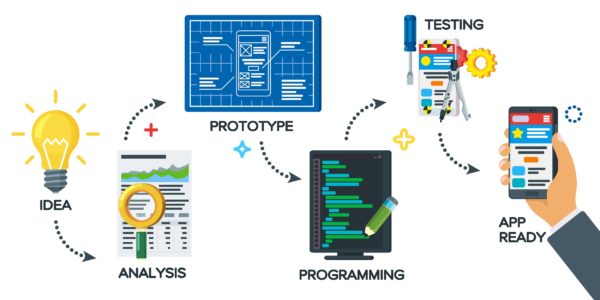What to Consider When Developing a Mobile App
Mobile apps are definitely in demand today. That’s why if you’re considering to develop one, plan carefully so that it can meet your goals and can benefit the intended users.
The consistently increasing demand for mobile phones directly corresponds to the consistently increasing demand for mobile apps. However, many mobile apps fall short because of poor quality – in terms of usefulness, ease of use, and security. Indeed, the bar is set high for mobile apps nowadays. In fact, users even check into a mobile app development company before they download and/or purchase an app to make sure that the app is reliable and of great quality.
When developing a mobile app, put yourself in the shoes of the user. Identify your needs, expectations, and preferences when using the application. 
So, what are the considerations to take when developing a mobile app?
1. Ensure security
The more successful, popular, and useful your mobile app is, the more prone it is to cyberattacks and hackers. Hence, you shouldn’t rely solely on the built-in security provided by the phone’s system, whether it’s iOS or Android. This is a very important consideration when developing an app as it may cause legal problems when security is breached, especially when it comes to user data.
2. Know your competition
It would be an advantage to first check your competition or any related app because you may get valuable information that you can use to develop your app. The areas that you can focus on when comparing your (future) app to others can include the app’s content, organization, interface, and usability. For example, if your competition offers offline usage, which is preferred by most users, you may also want to adopt such idea and even create a better version.
3. An excellent app description is a must!
Your mobile app description is the “face” of your app. Thus, make sure that your description is easy to understand, engaging, and short but also substantive enough. Don’t make your description too general as it may be ambiguous and confusing to potential users. Provide specifics.
4. Anticipate maximum budget
Developing a mobile application is not the cheapest thing to do. It is advisable to determine your maximum budget and prepare for it in advance to ensure that you can develop your mobile application smoothly and without financial constraints. You definitely don’t want to go broke for an app or discontinue its development because you ran out of funds.
5. Give attention to responsiveness
Make sure that the chances of your app to crash are very minimal. Test your mobile app by installing it through different platforms and devices to evaluate its responsiveness. Avoid making your users wait for your app to respond and work. Such inconvenience will cause user dissatisfaction, and the user will rate your mobile application as poor quality. This will result in a large number of people posting negative feedback, which is detrimental to the success of your mobile app.
6. Keep it simple
Don’t overdo the design and structure of your app. Just make it simple and easy to use. The easier the mobile app to use, the higher the satisfaction of the users, the more recommendations you will get. Top app development companies know that user friendliness is one of the most important contributing factors to the success of an app. Hence, keep this is mind.
7. Identify user needs
It will be advantageous and beneficial in the development of your app if you know what most users want and use. This will require you to research on what the users’ preferences are in terms of design, utility, and technology. Sometimes, the obvious parts that need to be developed are the ones that are often neglected.
8. Make your app available to all platforms
The availability of your mobile app to all platforms is crucial. Rarely do people use just one device. Users usually want access to their apps from different platforms. The more flexible and accessible your app is, the more users you can get. Never assume that one platform has a higher demand and is better than the other as times can change very quickly. Make it possible that your app’s availability is not just limited to iOS, Android, Windows, etc. If you cannot afford to make your app accessible in all platforms, it’s wise enough to prioritize what platform is mostly used by the users.
9. Provide flexible screen size and pixel density
Optimize your app for different screen sizes and different gadgets. This ensures that your app can be accessed by anyone with ease and convenience, regardless of the type of gadget. Bear in mind that not all people will get their hands on the latest gadget even if they can afford to have one.
10. Improve app vulnerabilities
Identify the vulnerabilities of your app, especially database-related issues. This refers (i) good-enough structure for your data, (ii) storage capacity, and (iii) accessibility of data and security.
Surely, you want to give the best to your users and at the same time create an app that you can be proud of. You definitely don’t want your users to uninstall your app and leave a negative feedback that will potentially decrease the value of your app. Instead, you want them to use and stay with the app for longest possible time. Keep the points above in mind in order to develop a successful mobile app.

















